Photos of Humphrey Wentletrap shell, Epitonium humphreysii, scientific classification and general information on habitat and range..
Humphrey Wentletrap Epitonium humphreysii (Kiener)
Humphrey Wentletrap Epitonium humphreysii (Kiener)
Description: (3/4 inch) Small, high-spired shell. Very similar to angulate wentletrap in appearance, habitat and numbers, but eight to nine rounded ribs on each whorl thicker and not angulate at shoulder. Also, generally more slender with a thicker lip on round aperture. Smooth spaces between ribs. Operculum.
Color: White exterior and interior. Mahogany-colored operculum.
Habitat: Occasionally found in drift on ocean beaches.
Range: Massachusetts to Texas.
Notes: (See brown-band wentletrap Notes) : Also called lined wentletrap. About 24 kinds of wentletraps have been recorded in North Carolina waters. A carnivore, it forages in sand for sea anemones and tears tissue with its jaws. It secretes a substance that turns purple and may anesthetize the anemones. Females lays strings of sand-covered egg capsules. Its young are free-swimming. The precious wentletrap (up to 2 3/4 iches long) from the Pacific Ocean is one of the prettiest shells known.
Source: Seashells of North Carolina, North Carolina Sea Grant College Program

Wentletrap
Auger-Shaped - wentletraps (Epitoniidae)

(High Resolution) Wentletrap

(High Resolution) Wentletrap

(High Resolution) Wentletrap
Enlarge images to 320 pixels by clicking thumbnails
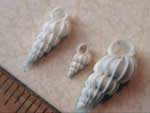 |
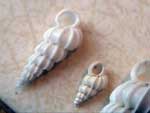 |
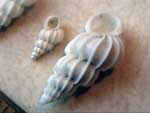 |
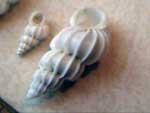 |
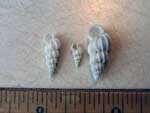 |
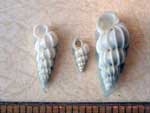 |
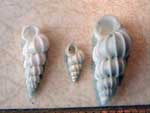 |
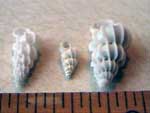 |
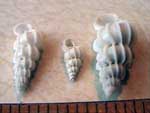 |
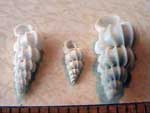 |
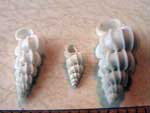 |
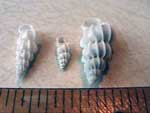 |
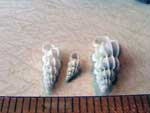 |
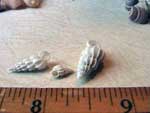 |
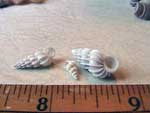 |
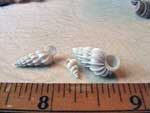 |
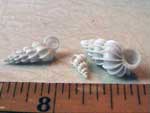 |
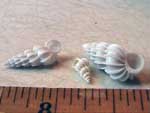 |
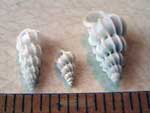 |
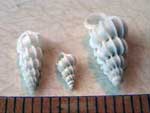 |
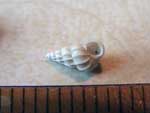 |
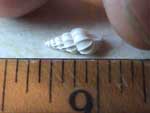 |
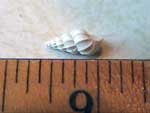 |
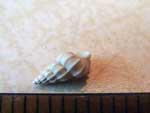 |
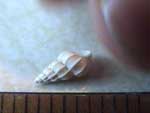 |
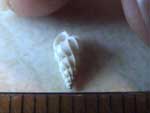 |
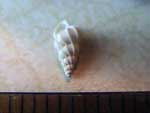 |
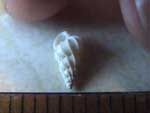 |
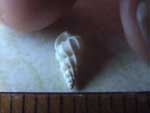 |
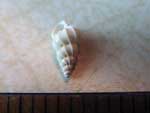 |
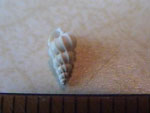 |
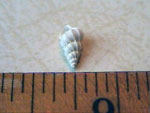 |

(High Resolution) Wentletrap

(High Resolution) Wentletrap
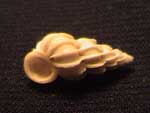 |
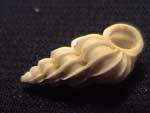 |
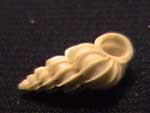 |
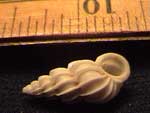 |
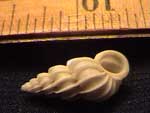 |
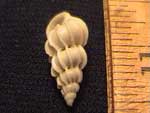 |
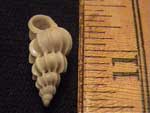 |
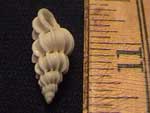 |
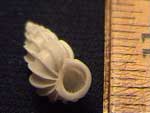 |
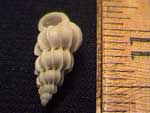 |
||
Other Wentletraps Epitonium angulatum (Say)
Angulate Wentletrap Epitonium angulatum (Say)
Description: (1 inch) High, slender, glossy spire. Each whorl with nine to 10 strong ribs, each slightly angled on the whorl shoulder. Smooth spaces between ribs. Round aperture. Operculum.
Color: Shiny white interior and exterior. Reddish brown operculum.
Habitat: Occasionally found in drift on ocean beaches.
Range: New York to Uruguay.
Notes: (See brown-band wentletrap Notes) : Also called lined wentletrap. About 24 kinds of wentletraps have been recorded in North Carolina waters. A carnivore, it forages in sand for sea anemones and tears tissue with its jaws. It secretes a substance that turns purple and may anesthetize the anemones. Females lays strings of sand-covered egg capsules. Its young are free-swimming. The precious wentletrap (up to 2 3/4 iches long) from the Pacific Ocean is one of the prettiest shells known.
References and Further Reading
Angulate vs. Humphrey Wentletrap?
Epitonium angulatum (Say, 1830). Mayport Naval Station Beach, Duval Co, FL (about 25 mm.) By far the most common wentletrap on our beaches.
Database ...Epitonium angulatum (Say, 1831). Range: 41°N to 35°S; 97°W to 0°W Depth: 0 to 219 m (live 0.5 to 0.5 m) Maximum Reported Size: 25 mm
Family Epitoniidae Epitonium angulatum (CB Adams, 1839) Angulate wentletrap - 25 mm
Shell variation of Epitonium angulatum
Epitonium angulatum. Classification. Rank, Name, Author
Taxonomic history. No taxonomic history is available for Epitonium angulatum. Synonymy
Epitonium angulatum (Say, 1830). 092 Epitonium candeanum (Orbigny, 1842). 093 Epitonium dallianum (Verrill & Smith, 1880)
Gastropoda. Caenogastropoda. Epitoniidae. Epitonium humphreysi. Gastropoda. Caenogastropoda. Epitoniidae
pitonium angulatum - Epitonium angustum Epitonium aureomaculatum - Epitonium auritium Epitonium barissum - Epitonium bellastriatum
1/2-7/8" (13-22 mm) high. Elongate, slender to moderately broad, with pointed spire; white. Whorls smooth, rounded, separated

No comments:
Post a Comment